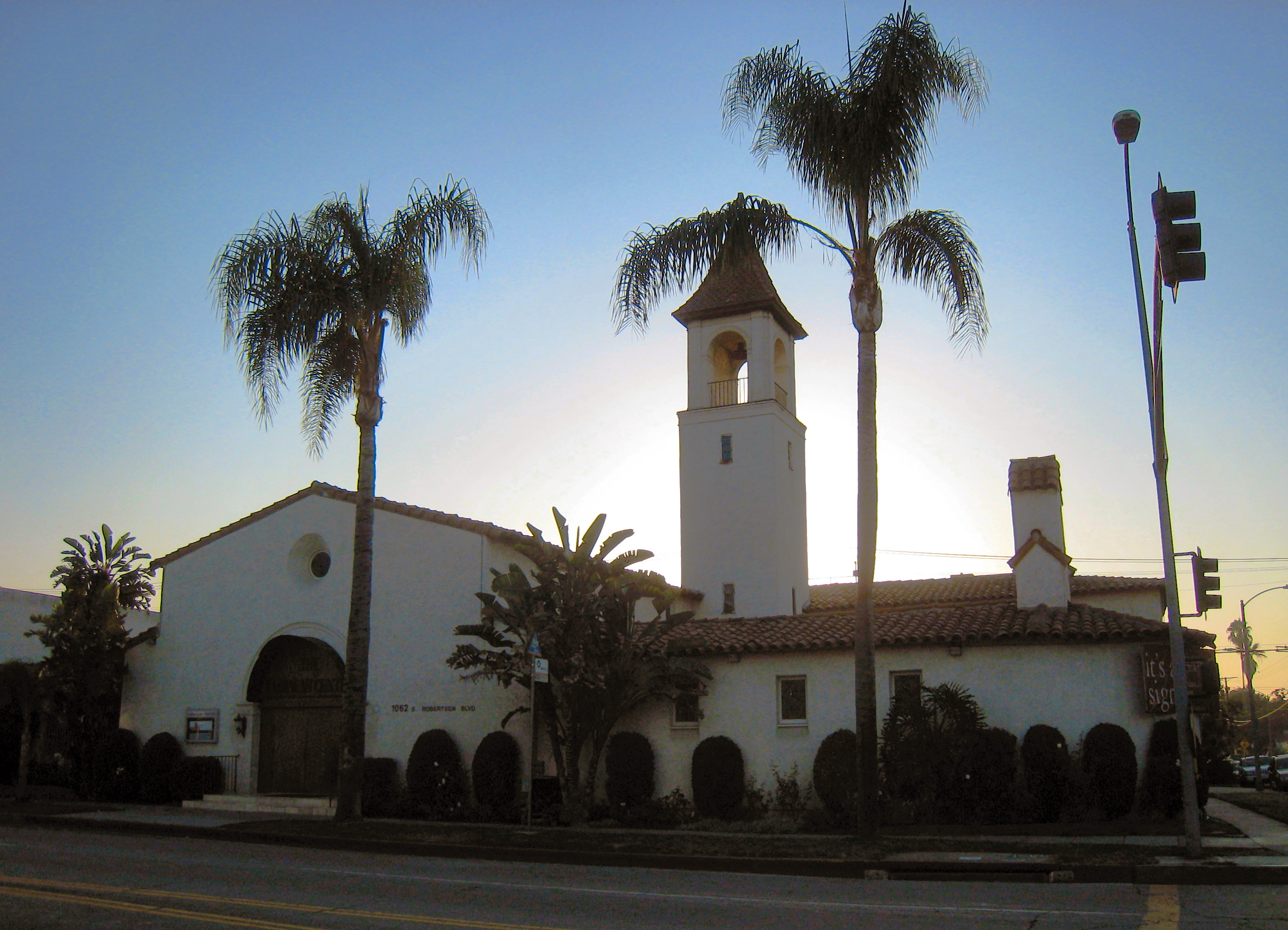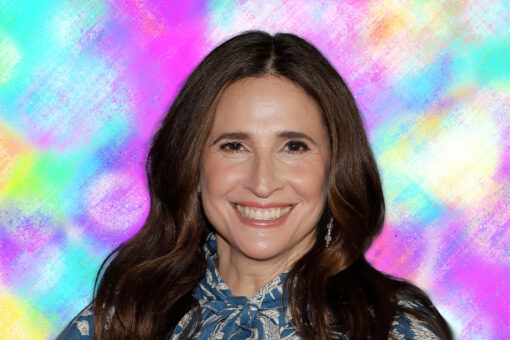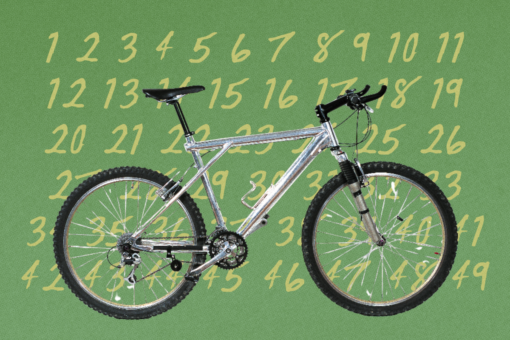I went to the Kabbalah Centre in Los Angeles seeking spiritual guidance, and all I left with was a lingering fixation with the perfect Jewish couple in front of me. But more on that later.
From microdosing and burning sage to praying on red candles gifted by gypsy psychics, I’ve always been open to various healing modalities. And yes, I’ve tried antidepressants, too—I don’t discriminate. A year ago, I moved across the country, feeling on top of my game, ready to take on an adventure in Los Angeles and leave New York behind, where I was feeling stifled by the daily shuffle and my cramped studio apartment—AKA the prevailing yet reasonable cliché for a mid-20s Manhattan exodus.
L.A. is a complex enough city to constantly contradict itself. Some days all I feel is its preternatural atmosphere of opportunity—and that’s thrilling. Other times all I see is the sad manifestation of phonies who only seem to have made it because they were cultivated by other phonies.
About five months fresh to L.A., I still felt fairly unrooted in my new home, so I decided to check out the Kabbalah Centre. There was nothing to lose: If it was helpful, great. If there was a cool Jewish community there, major plus. If it was a sham, at least I’d be amused.
Through the lens of pop culture, I’m fairly late to the game. It was 2005 when I first heard about Kabbalah through my teenage bible: Us Weekly. During the anachronistic age of MySpace when all I really cared about was my Top 8, Splendid thermals from Nordstrom, and sparkly purple eyeliner a la The Warped Tour, sitting in my room in the Catskills thumbing through celebrities’ far more interesting lives felt right. Demi Moore, Madonna—and we can’t forget Britney—made Kabbalah seem cool. If these three gentile superstars who’d certainly hosted elaborate Easter egg hunts were interested in an obscure mystical tenet of Judaism, there had to be something to it!
At 26 years old, embarking on my third existential life crisis, I was determined to find out.
***
If you’ve never been to the free introductory Kabbalah class at the Centre, let me paint a picture of holy decadence for you. It involves a full buffet of kosher sushi (well stocked with seaweed salad and both eel sauce and spicy mayo on the side) in an outdoor garden room, a bevy of single women who have driven all the way from Calabasas to find potential suitors, and a Persian finance guy named David who wears one of those headset microphones that mimics a performer in a convention center—which is essentially what he is.
Kabbalah is a strain of Jewish mysticism that reveals how “the universe and life work” by imparting practical tools. Something about the word “tools” in a non-Home Depot way has always sounded lame to me. Like, “Help, I lack proper coping mechanisms and need tangible instructions on how to exist as a functioning human being.” Which of course, I do. I’ve been to a handful of therapists, and only Dr. Jen Silberstein, the Cognitive Behavioral Therapist with bellbottoms, chunky combat boots, and stacked silver rings, really insisted on me using “tools.” And I wanted her to like me (can’t lie, I sort of thought we were friends), so I frequently asked about the mysterious tools in my sessions with her. “Dr. Jen, what are these tools you speak of?” Mindfulness, forgiveness, meditation—all things that require hard work and consistency, both of which are foreign to the cultural ethos of an entitled millennial.
But of all the therapists I’ve had the forlorn pleasure of interacting with (Dr. Goodman, Dr. Fishman, Dr. Levine—are you noticing a trend? Mishegas recognizes mishegas), none have yet to present themselves quite like David the Kabbalist Oracle. And if you consent to follow him into an overcrowded, stark white walled room with fellow plagued people seeking the magic antidote to depression and anxiety, you too can ascend from the darkness to the light. Or something.
The head-pounding club music that summons guests upon entering the Centre is alarming. (By the way, do you think they spell it centre because it seems more European and classy? I do.) The turgid techno beats shadow you until you’ve found your very own cold metal folding chair. To my left was a Spanish man who told me his friend invited him because he knew his business was plateauing. To my right were two balding men loudly smacking their gum. I considered telling the sound guys to cut the Diplo and turn on something a little more appropriate (Spa Radio on Sirius XM?) but then I spotted my distraction, the holy grail of Jewish couples: Andrew and Esther.
Andrew, in his navy Polo half-zip and freshly ironed slacks, caught my eye immediately because of the aristocratic way he carried himself. He seemed like the kind of guy who eats salmon for dinner three times a week and recently had a bidet installed in his bathroom so that his ass would never have a speck of male manure glued somewhere in his Calvin undies. He sauntered down the aisles with intention, flashing his dazzling baking soda-white teeth to the regulars and stopping every so often to gaze around and make sure everything was running like a smooth machine. Even in all of his asshole-ish glory, he was still pretty hot.
I was still waiting for the lecture to begin, AKA refreshing Instagram and contemplating jetting out of the place, when Esther showed up—late, with wet auburn hair, a gracious smile, and a runner’s body to match Andrew’s, who she had clearly come to meet.
Finally, the music came to an abrupt pause along with the much-welcomed diminuendo of my fellow seekers. “The minute you learn some of these tools and plug in, the universe will start to send you the blessings that are meant for you. That’s the simplicity and power of this,” David the Kabbalist Oracle said as he addressed the crowd in his all-white get up, like he just waltzed out of what conventional wisdom describes as heaven or perhaps Diddy’s annual Hamptons white party (one in the same to me). I kept my eyes on Andrew and Esther, obsessing over this seemingly perfect couple who looked like they’d get menstrual cramps on the same day, if only that were humanly possible.
David continued, “Our soul chooses the types of people it wants to receive in its life. Our soul came to the world with certain negative character traits and we chose the characters in our own movies that would be perfect for showing us these traits.” What a joy, I thought. Andrew, Esther, the gum smackers, King David, all here to act as mirrors reflecting back the jealousy, skepticism, and impatience I projected throughout my time sitting there. And that’s when I realized that the consummate yet nauseating couple I took such delight in observing were probably in a predicament of their own, fighting a unique set of demons that must have brought them to the Centre in the first place, just like me.
***
Exiting the building, I forgot where I parked my car for a moment, and I remembered another thing David the Kabbalist Oracle said: “When something annoying or bad happens to you, instead of getting angry, simply say, ‘What a pleasure.’” As if there is a lesson in the tiniest of vexations, from momentarily losing your vehicle to a person cracking their knuckles in absolute silence. There has to be something to it, on some level, I thought, but only more so in situations where you can actually glean something from your aggravation—and if I was supposed to have learned patience from this experience, then alas, that’s a struggle for life. But being aware is half the battle.
As for my future in the Kabbalah community—I think I’ll take a pass. Although, to be fair, they do offer recorded podcasts, which I have turned on once or twice while driving stop-and-go on the 101. In any event, there’s always Scientology.



